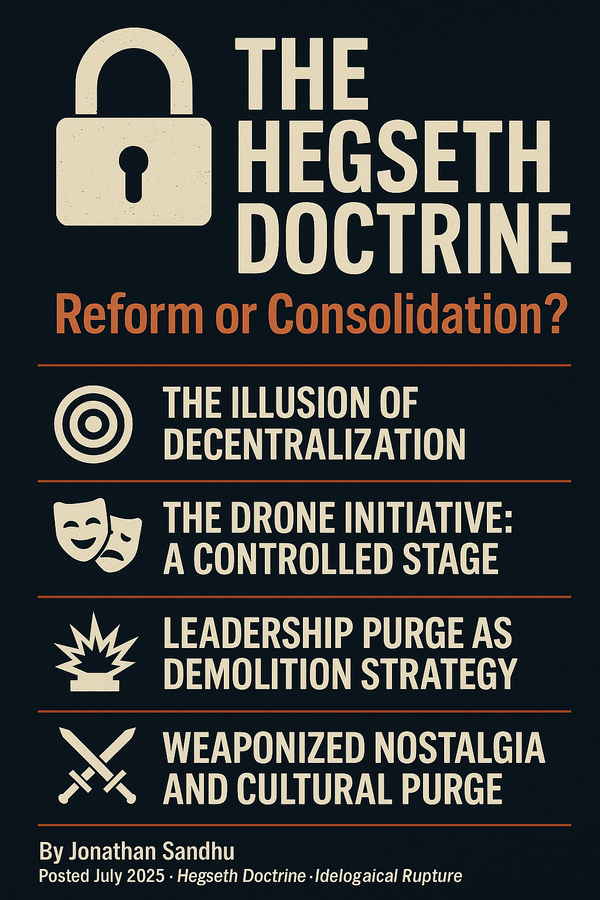The Last Gatekeepers: From Viral Outrage to AI-Driven Compliance

Viral Power Is Weakening, AI Compliance Is On The Rise
For years, ephemeral mania—the rapid, chaotic surges of online outrage—shaped digital power, allowing public outrage to topple figures, brands, and institutions. But that era is quickly fading.
Today, AI-driven compliance is quietly taking its place. Platform owners and algorithmic gatekeepers are now preemptively deciding what is seen, heard, and even allowed to go viral. There’s no more waiting for a public dogpile—now it's just a matter of whether you check in or vanish. The digital chaos that once reigned is now controlled behind the scenes.
This episode explains how we’re witnessing a fundamental shift—from ephemeral outrage to algorithmic compliance. No longer are crowds the deciders; now, digital compliance mandates shape the conversation before it even starts.
🎧 Listen to the Podcast Breakdown
🎤 Dive deeper: This podcast episode explores how Elon Musk, Sam Altman, and other influential figures are shaping the future of digital power. We also discuss the implications of AI-based moderation and the rise of forced compliance across platforms.
📖 Read the Full Paper (Google Doc)
📝👉 Click Here to Read & Comment
What’s Inside?
- A detailed analysis of how AI-driven legitimacy is quietly replacing public outrage as the determinant of truth and visibility online.
- Case studies of Musk’s Twitter Slack ultimatums, Trump’s 48-hour check-in mandates, and AI content moderation systems reshaping digital discourse.
- Historical parallels from Soviet-era mandatory attendance to McCarthy-era loyalty oaths illustrating the rise of “check-in or vanish” mandates.
- Concrete policy recommendations to safeguard digital autonomy: transparency mandates, rights to silence, and multi-stakeholder AI oversight.
🚨 What’s Happening Now?
- Musk’s Twitter (X) Ultimatum: No viral outrage needed—just a 24-hour deadline to "check in or resign."
- Trump’s 48-Hour Check-In: Federal employees silently removed for failing to confirm their status within a narrow window.
- AI Moderation Systems: Algorithms, not crowds, determine what is visible and what gets erased before it even starts trending.
While ephemeral mania still erupts occasionally, AI-driven compliance preempts it, quietly maintaining control behind the scenes. This shift isn’t just about algorithms taking over; it’s about removing unpredictability from digital discourse entirely.
🔥 Why This Matters
- Viral power is no longer in the hands of the crowd. With AI-driven compliance, non-response equals dismissal.
- Platform owners and CEOs now wield the ability to control the narrative before it even becomes a story.
- Content suppression via algorithmic tools is rapidly becoming the norm, with AI determining what qualifies as “acceptable” discourse.
This shift threatens the freedom of digital expression—but it’s not unstoppable. If we act now, we can preserve some level of unpredictability and agency online.
⚡ Next Steps: How Do We Resist?
- Recognize the shift from viral power to forced compliance.
- Push for transparency in AI-based content moderation and “check-in” mandates.
- Demand protections for non-engagement, preserving the right to silence in the digital realm.
- Support multi-stakeholder governance for AI systems, ensuring no one entity holds the power to determine digital legitimacy.
Join the conversation: The battle over digital autonomy and AI-driven governance is just beginning. How we respond today will shape the future of free discourse.
🚀 Final Thoughts
If we remain silent—if we let “check-in or vanish” become normalized—we risk erasing the last vestiges of unpredictable digital power. We must decide: do we embrace digital compliance as the future? Or do we fight for the right to remain unpredictable, unscripted, and uncontrollable?
Read the full paper and listen to the episode now—before it’s too late to shape the conversation.




